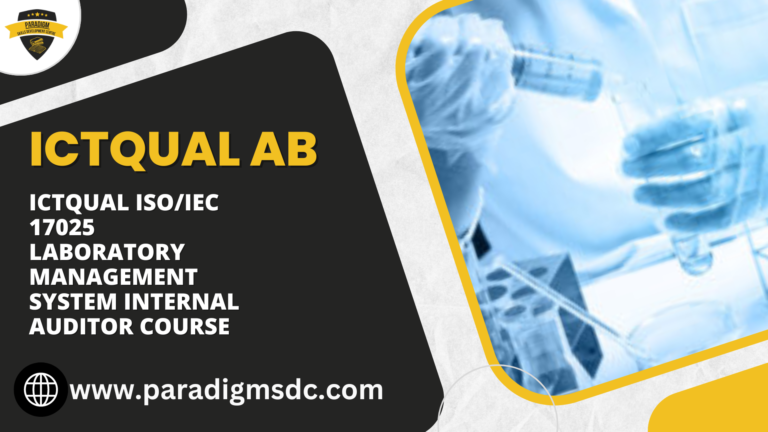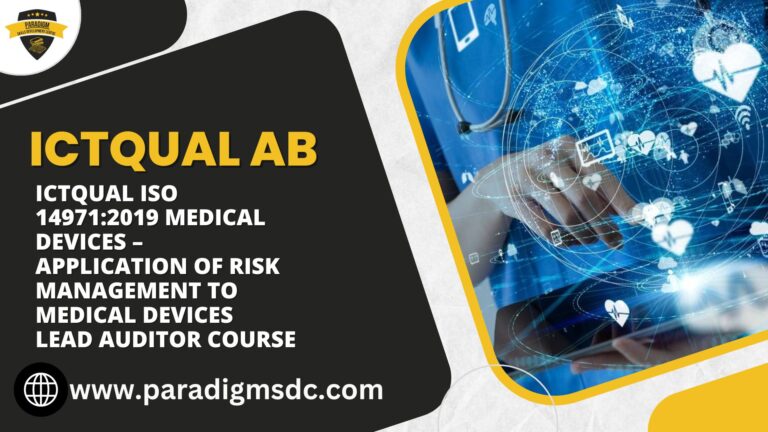The ICTQual Level 3 Diploma in Biotechnology Engineering is a comprehensive, industry-recognized qualification designed to equip learners with essential knowledge and practical skills in biotechnology engineering. This 60-credit diploma is perfect for those seeking a fast-tracked pathway into the world of biotechnology and its related industries. While typically completed in 6 months, this program can be fast-tracked and completed in just 3 months with dedicated study and effort.
The ICTQual Level 3 Diploma is a specialized qualification that focuses on the principles of biotechnology engineering, providing learners with a deep understanding of the science and technology behind the biotechnological processes. This course covers essential topics such as molecular biology, genetic engineering, and laboratory techniques, making it ideal for those looking to build a solid foundation in biotechnology.
The ability to complete the ICTQual Level 3 Diploma in Biotechnology Engineering in just 3 months is a key advantage for those looking to fast-track their careers in biotechnology. By committing to an intensive study schedule, you can gain industry-recognized qualifications much faster, allowing you to enter the workforce or further your academic pursuits sooner.
The ICTQual qualification is recognized by employers across the biotechnology and engineering industries. The diploma signifies that you have the necessary skills and knowledge to excel in biotechnology roles, which can significantly enhance your employability.
The ICTQual Level 3 Diploma in Biotechnology Engineering (60 Credits) offers an excellent opportunity to gain the skills and qualifications necessary for a successful career in biotechnology. With a 3-month fast-track option, this program allows you to quickly and efficiently gain a qualification that will help you stand out in the competitive biotechnology field. Whether you are looking to start your career or advance your existing knowledge, this diploma provides the ideal foundation for your future.
Study Units:
- Introduction to Biotechnology and Engineering Principles
- Cell Biology and Molecular Genetics
- Bioprocessing and Bio-manufacturing Techniques
- Biotechnology Laboratory Techniques and Safety Protocols
- Genetic Engineering and Biotechnology Applications
- Biotechnology Project Management and Professionals
Learning Outcomes:
Below are the learning outcomes for each of the study units in the ICTQual Level 3 Diploma in Biotechnology Engineering program:
1. Introduction to Biotechnology and Engineering Principles
By the end of this unit, learners will be able to:
- Understand the fundamental concepts and history of biotechnology.
- Describe the role of engineering in biotechnology and its applications across various industries.
- Identify and explain key biotechnological processes used in healthcare, agriculture, and environmental science.
- Assess ethical considerations and their impact on biotechnology practices.
2. Cell Biology and Molecular Genetics
By the end of this unit, learners will be able to:
- Demonstrate knowledge of cell structure and function.
- Explain the processes of DNA replication, transcription, and translation in cellular biology.
- Analyze genetic inheritance and the mechanisms of mutation.
- Apply molecular genetics techniques, including PCR and gene editing, in practical scenarios.
3. Bioprocessing and Bio-manufacturing Techniques
By the end of this unit, learners will be able to:
- Understand the principles of bioprocessing and bio-manufacturing in industrial biotechnology.
- Describe the function and operation of bioreactors and fermentation processes.
- Evaluate downstream processing methods and the importance of purification in biotechnology.
- Apply quality control measures and assurance standards in bio-manufacturing processes.
4. Biotechnology Laboratory Techniques and Safety Protocols
By the end of this unit, learners will be able to:
- Operate common laboratory equipment and tools used in biotechnology.
- Implement safety protocols and risk management strategies in laboratory environments.
- Conduct laboratory procedures such as aseptic cultures, media preparation, and sterilization with accuracy and safety.
- Design experiments, record data, and analyze results to draw valid conclusions in biotechnology contexts.
5. Genetic Engineering and Biotechnology Applications
By the end of this unit, learners will be able to:
- Describe the principles and techniques of genetic engineering, including gene editing technologies like CRISPR.
- Apply genetic engineering methods to modify microorganisms, plants, and animals.
- Evaluate the diverse applications of genetic engineering in fields such as medicine, agriculture, and environmental conservation.
- Discuss the ethical, legal, and regulatory considerations involved in genetic engineering practices.
6. Biotechnology Project Management and Professional Practice
By the end of this unit, learners will be able to:
- Understand the principles and tools of project management, including time management and resource allocation.
- Plan and manage biotechnology projects from initiation to completion, ensuring deadlines and budgets are met.
- Communicate effectively within biotechnology teams, fostering collaboration and professionalism.
- Demonstrate professional conduct and adhere to ethical standards in biotechnology engineering practice.







